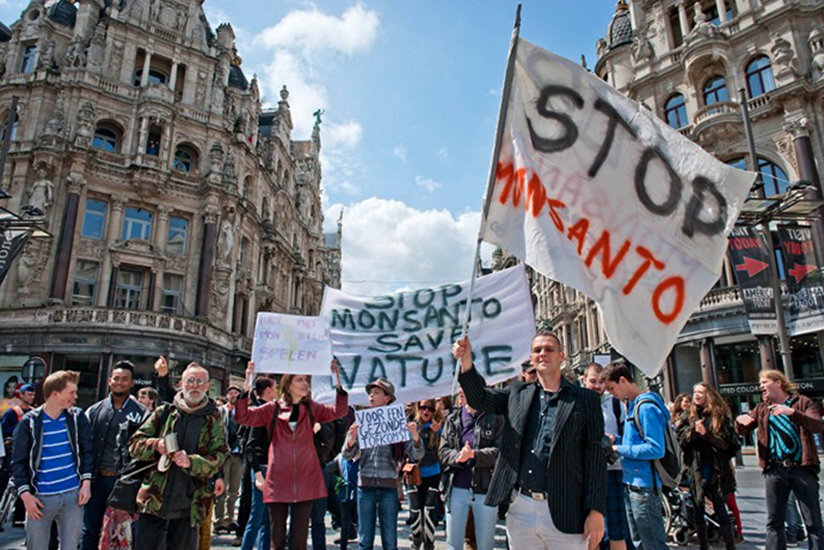
How an Agrichemical Industry Mouthpiece Is Trying to Undermine GE Labeling with Bogus Legal Analysis
In an op-ed published by Forbes last week, a pro-biotechnology mouthpiece who used to work for the tobacco industry wrote a provocative piece arguing that a recent U.S. Supreme Court decision imperiled the constitutionality of mandatory genetically engineered food labeling. The claim is flat out wrong and shows no understanding of constitutional law or the issue of labeling of genetically engineered foods. Before rebutting it, some context is helpful.
October 5, 2015 | Source: Alternet | by George Kimbrell
In an op-ed published by Forbes last week, a pro-biotechnology mouthpiece who used to work for the tobacco industry wrote a provocative piece arguing that a recent U.S. Supreme Court decision imperiled the constitutionality of mandatory genetically engineered food labeling. The claim is flat out wrong and shows no understanding of constitutional law or the issue of labeling of genetically engineered foods. Before rebutting it, some context is helpful.
Genetically Engineered Foods
Right now Americans in every state are working to secure labeling for genetically engineered (GE) foods, which have been subject to significant controversy since their introduction in 1996. Polls regularly show that over 90% of Americans support their mandatory labeling. Unfortunately, unlike sixty-four countries across the globe—including all of the Europe Union, Japan, New Zealand, Australia, Brazil, Russia, China, and many others—the United States has so far declined to require labeling for genetically engineered foods, leaving the public in the dark about whether the foods we buy are transgenic.
What is driving this nationwide outcry for labeling? Consumers are becoming more aware that while few whole foods are genetically engineered, a substantial majority of processed foods are now produced with genetic engineering. The public recognizes that having thousands of processed foods produced with genetic engineering, yet unlabeled, is deceptive, or at best confusing, to consumers.
Further, Americans are increasingly aware of the risks and negative impacts of genetically engineered crops, correctly seeing through several decades of myths that were carefully constructed by agrochemical companies to promote their products. On the human health side, the public is realizing that the U.S. Food and Drug Administration (FDA) does not actually test the food safety of engineered foods or “approve” them; rather, it has confidential meetings with industry in which it merely reviews the industry’s own testing—and even that is voluntary. Americans are also realizing that no long-term or epidemiological studies in the United States have examined the safety of human consumption of genetically engineered foods, and that without labeling, there is no accountability or traceability to link such foods to proliferating public health problems.
On the environmental side, people are recognizing that genetically engineered crops are a key cog of inherently unsustainable industrial agriculture, and cause significant adverse environmental impacts. Genetically engineered crops are essentially a pesticide-promoting technology: They are overwhelmingly engineered to be resistant to pesticides or produce pesticides, and consequently have dramatically increased overall pesticide output into our environment. Monsanto’s Roundup Ready varieties, resistant to glyphosate, have made glyphosate the most used pesticide in history, with over 280 million pounds applied in U.S. agriculture in 2012 alone. Earlier this year, the World Health Organization’s International Agency for Research on Cancer concluded that glyphosate is probably carcinogenic to humans.
